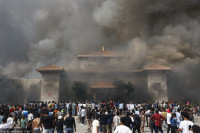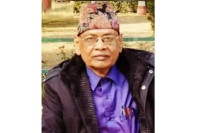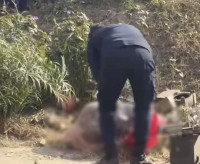Valley
MoHP to fast-track drugs import
The Ministry of Health and Population is all set to fast-track medicine procurement in a bid to ease supply of drugs in the country.
The Ministry of Health and Population is all set to fast-track medicine procurement in a bid to ease supply of drugs in the country.
In the wake of protests in the Tarai region and unofficial blockade by India, the country is reeling under acute shortage of general medicines, life-saving drugs and surgical equipment, with many of the health facilities in the capital and other parts of the country failing to provide services to the needy.
The MoHP on Tuesday tabled a proposal to fast-track procurement of medicines. The government will soon call for tenders to import medicines. The MoHP is planning to procure 105 types of essential drugs worth Rs 200 million for now.
Dr Bhim Tinkari, Chief of Logistics Management Division of the MoHP, said domestic and international companies will be invited to bid. The ministry is planning to keep the evaluation period very short so that companies can start importing medicines as soon as possible, said Dr Tinkari.
The MoHP took the decision to call for bids to import medicines after suppliers who were assigned to deliver drugs failed to replenish the stock due to the Indian blockade and protests in the Tarai.
Shortages concern int’l community
KATHMANDU: The World Health Organisation, Unicef, UNFPA, Joint United Nations Programme on HIV/AIDS (UNAIDS), Department for International Development (DFID), German Development Cooperation (GDC, GIZ, KfW) and Korea International Cooperation Agency have expressed deep concern over the critical shortages of essential and life-saving drugs and vaccines in Nepal, warning that the shortages could disrupt public health programmes, including routine immunisation, which will have an extremely serious and lasting impact on the health of children.
Issuing a joint statement, they have urged all sides to address restrictions on the import and free movement of essential supplies, including vaccines, drugs and other medical goods as a means of respecting and facilitating the people’s right to access quality health care services. Reduced ability to access health care services is already affecting the most vulnerable, they said.




 12.12°C Kathmandu
12.12°C Kathmandu










